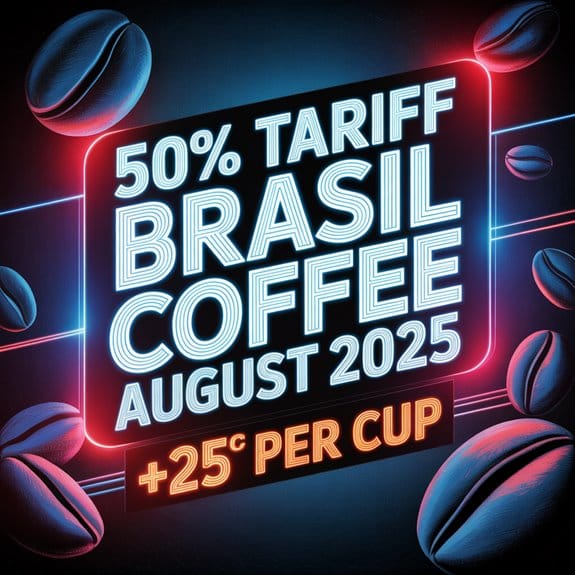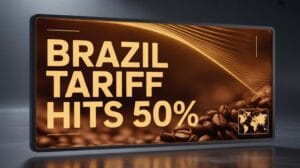A bitter storm brews over coffee trade as U.S. tariffs targeting Brazil—the country’s next-largest coffee supplier—threaten to reshape America’s caffeine cravings. Starting August 1, 2025, a 50% tariff will hit all U.S. imports of Brazilian coffee. Last year, Brazil supplied over 8.1 million bags (60 kg each) to American buyers, but analysts warn the tax could slash or even halt some shipments. This move comes as global coffee prices already reached record highs last quarter due to extreme droughts in Brazil and Vietnam, slashing harvests in both key regions.
“It’s a lose-lose situation,” one expert said, noting both exporters and consumers stand to suffer. Brazilian suppliers are pausing new deals while waiting to see if negotiations ease the strain. Coffee culture has evolved into global social hubs, where consumers seek unique experiences alongside their caffeine fix.
The tariff could push U.S. wholesale coffee prices up by 50%, with retail costs rising by around 25 cents per cup within three months. While price hikes will start small, they’ll hit hardest for fans of Brazilian specialty beans. Some buyers might switch to cheaper alternatives, but options are limited.
U.S. wholesale coffee prices may surge 50%, adding 25 cents per retail cup, disproportionately impacting specialty Brazilian bean enthusiasts with few alternatives.
Vietnam and Indonesia—facing lower tariffs of 20% and 32%—could steal market share, as could other countries with baseline 10% rates. Uncertainty surrounds India and Nicaragua’s tariff status, where rates may rise to 27% and 19% if unresolved by mid-2025. These producers are already eyeing opportunities to fill Brazil’s gap, scrambling to lock in long-term contracts.
Brazil’s Coffee Exporters Council warns the move will hurt both nations. Exporters face losing critical U.S. contracts, forcing them to slash prices elsewhere or hunt for new buyers. The country’s dominance as a top coffee supplier, built over decades, now risks unraveling.
Meanwhile, U.S. importers could see disrupted supply chains, delayed orders, and strained relationships with roasters dependent on Brazilian beans. American consumers may soon notice changes. Higher prices could push budget-conscious drinkers toward blended or non-Brazilian options, while cafes and stores reformulate menus to cut costs.
Even with substitutions, experts say quality or variety might dip, especially for premium blends. Geopolitical tensions underpin the tariffs—Brazil’s recent legal actions against former leaders reportedly fueled U.S. frustration—and the fallout could ripple beyond coffee. Trade ties in agriculture or manufacturing might fray if tensions linger.
While the full impact remains unclear, one thing’s certain: the world’s coffee map is shifting. Brazil’s billion-dollar U.S. empire now hangs in the balance, and its competitors are ready to pounce.





